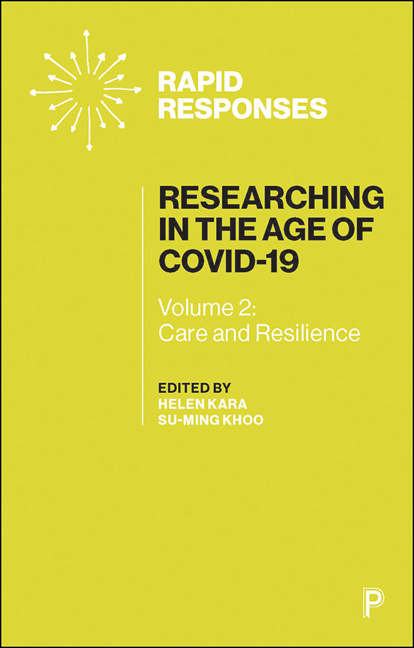4 - Methodological and Ethical Considerations in the Study on Children’s Everyday Lives Under COVID-19 in Three African Countries: Ghana, Nigeria and South Africa
Published online by Cambridge University Press: 23 March 2021
Summary
Introduction
As an increasing number of countries across the globe face the unprecedented global crisis imposed by COVID-19, it is clear that individuals’ everyday lives will be impacted for a long time to come. Nations have already experienced the closure of everyday institutions (kindergartens, schools, universities, offices and so on) and the impact of the restrictive lockdown measures to curb the spread of the virus. Locked up in our houses, our sense of time and space has been altered. Physical human contact is becoming highly restricted; something that we know is very important for emotional and psychological wellbeing.
Children's lives today are strongly influenced by global structures and trends (Allerton, 2016). Although children's lives are predominantly studied at a much smaller scale, their everyday lives are shaped by processes that take place at a larger scale (Ansell, 2009). Hendrick (2008) argues that research with children has often included asking the adults in their lives and not the children themselves and the dominant narrative frames children as ‘vulnerable’. The sociology of childhood paradigm changed this view and argued that children have the right to be heard. The COVID-19 lockdown, as with other global crises, presents such an opportunity to hear directly from children about their everyday lives. However, the restrictions of the COVID-19 pandemic mean that studying children may require researchers to deploy methodologies that pose no or minimal threat to the lives of these children as well as their parents.
This chapter describes the methods and ethical considerations in a study that examined children's everyday lives during COVID-19 in three African countries, namely Ghana, Nigeria and South Africa. The chapter will include a description of the methodology that was used in the three countries to gather children's experiences during the lockdown. This will be followed by a discussion on the ethical considerations for the overall study, including examples from the three case studies. We will then discuss some challenges being faced by the researchers as they collect(ed) data. The chapter ends with some reflections about the choice of method that may be useful for future studies with children during crises and a conclusion.
- Type
- Chapter
- Information
- Researching in the Age of COVID-19Volume II: Care and Resilience, pp. 48 - 57Publisher: Bristol University PressPrint publication year: 2020



